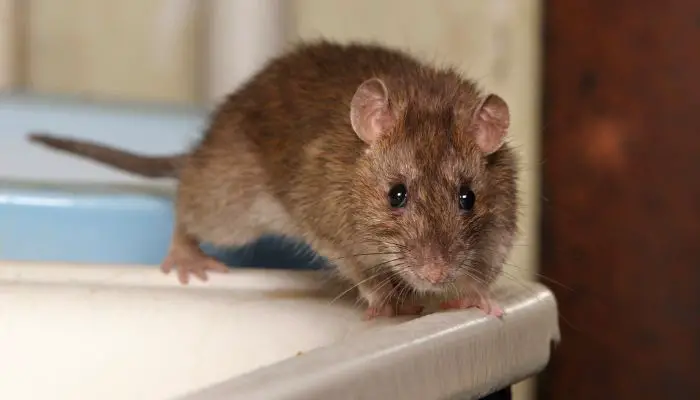Rats are known to carry a variety of diseases and infections, and their urine is no exception. In fact, rat urine can be extremely toxic and pose serious health risks to humans and animals alike. In this article, we will explore the dangers and risks of exposure to rat urine and what you can do to protect yourself and your loved ones.

The first and most obvious risk of exposure to rat urine is the risk of infection. Rats are known to carry a variety of bacterial and viral infections, including leptospirosis, hantavirus, and salmonellosis. These infections can be transmitted to humans through contact with rat urine, feces, or other bodily fluids. Symptoms of these infections can range from mild flu-like symptoms to severe organ damage and even death.
Another risk of exposure to rat urine is the risk of allergic reactions. Some people may develop an allergic reaction to the proteins found in rat urine, which can cause symptoms such as itching, rash, and difficulty breathing. In severe cases, an allergic reaction to rat urine can lead to anaphylaxis, a life-threatening condition that requires immediate medical attention.
In addition to these risks, exposure to rat urine can also lead to the development of certain chronic health conditions. For example, long-term exposure to rat urine can lead to the development of asthma and other respiratory problems. It can also lead to the development of certain types of cancer, such as bladder cancer.
To protect yourself and your loved ones from the dangers and risks of exposure to rat urine, it is important to take steps to prevent rat infestations in your home or workplace. This includes sealing off any potential entry points, keeping food and trash properly stored, and regularly inspecting your property for signs of rat activity.
If you suspect that you have been exposed to rat urine, it is important to seek medical attention right away. Your doctor will be able to provide you with a diagnosis and appropriate treatment based on your symptoms and exposure history.
In conclusion, rat urine is toxic and poses serious health risks to humans and animals alike. It is important to take steps to prevent rat infestations in your home or workplace and seek medical attention if you suspect that you have been exposed to rat urine.
Understanding Hantavirus Pulmonary Syndrome
Hantavirus Pulmonary Syndrome (HPS) is a severe respiratory illness caused by a virus called hantavirus. The virus is primarily found in rodent droppings, urine, and saliva, and it can be transmitted to humans through inhalation of contaminated dust, direct contact with infected rodents, or through bites from infected rodents.
Symptoms of HPS typically appear within 1-5 weeks after exposure and can include fever, fatigue, muscle aches, headaches, dizziness, chills, and abdominal problems. As the illness progresses, individuals may experience coughing and shortness of breath, leading to severe respiratory distress and, in some cases, death.
While there is currently no specific treatment for HPS, individuals who suspect they have been exposed to the virus should seek medical attention immediately. Supportive care, including oxygen therapy and mechanical ventilation, can help alleviate symptoms and improve outcomes.
Preventing HPS requires taking steps to reduce contact with infected rodents and their droppings. This includes practicing good hygiene and sanitation, keeping food and water sources away from rodents, and sealing any holes or cracks in buildings to prevent rodent entry.
It is important to note that HPS is rare, with only a few hundred cases reported in the United States each year. However, the virus is found in many parts of the country, and individuals who live or work in areas where rodents are present should take precautions to protect themselves.
Prevention Measures
- Keep food and water sources away from rodents.
- Seal any holes or cracks in buildings to prevent rodent entry.
- Practice good hygiene and sanitation.
- Wear gloves and a mask when cleaning areas that may be contaminated with rodent droppings.
In conclusion, Hantavirus Pulmonary Syndrome is a serious respiratory illness caused by a virus found in rodent droppings, urine, and saliva.
While rare, it is important for individuals to take precautions to reduce contact with infected rodents and their droppings, and seek medical attention if they suspect they have been exposed to the virus.
With proper prevention measures, we can minimize the risk of contracting HPS and improve outcomes for those affected.
Related Posts
Understanding Musophobia